Turn-based strategy games have been around for a very long time, at least as long as the computer itself with chess, the classic and one of the oldest strategy games around represented on many a computer.
As computers have gotten more advanced, so strategy games advanced too with more and more complex and detailed games coming out, modelling a wide array of subjects.
During the eighties, there was a renaissance of turn-based strategy with SSI famous for its strong catalogue, featuring conversions of many Avalon Hill board-games, as well as many original creations.
Turn-based went out of style for a while, though never totally died out and with the growth of the indie game, turn-based made a return to the main-stream, which peaked when Firaxis released the new updated version of XCOM in 2012, on PC and Xbox and, eventually a wide array of formats.
Criteria
The below list of the top ten strategy games of “all time” is my own list, based on my opinion but there are a few limiting criteria I’ve placed criteria I placed on myself:
Series – rather than clutter the list with multiple iterations from the same series, I’ve limited myself to just one entry for each major series. So whilst you will find Civilization in the list, I won’t have separate entries for Civ 1, Civ 2 and Civ 4.
Strategy – I’ve defined strategy games as anything that has a deep strategic element of it but the game may well play out in a tactical sense. To be strategic, there’ll need to be a campaign or ongoing element so a game like Chess would never make it onto the list.
Hybrids – I’ve made some allowances for games that have a hybrid of turn-based and real-time action but the focus of the game needs to be turn-based. Therefore, don’t expect to see any of the Total War series. Even though I’m a big fan, the game, for me, is primarily real-time.
Personal – I’ve not included any game that is a classic but I did not like it. I’ve also not included some classic games that I never played so do expect to see some all-time greats that aren’t on the list because I never got around to playing them
Honourable Mentions
This was a hard list to create and many games narrowly missed the cut. So, before we get to the list proper, here are a few honourable mentions:
X-Com: UFO Defence – the classic that redefined a genre, picking up from the classic Laser Squad and bringing a deep, complex and granular campaign element to the game. Dated now but at the time a truly inspiring game and with a brutal difficulty curve. Anyone who had half a squad blown up by an alien grenade inches from their Skyranger can attest to this!
Warsong / Langrisser – Released in the early 90’s on the Megadrive, Warsong is a fantasy turn-based strategy game with some RPG elements that truly felt like it was mana from heaven for a turn-based fan on console. With cute pixel/anime graphics and a cliched but fun story, Warsong is a great little game
Wildermyth – a modern classic in the making for me with charming graphics, deep storytelling and a simple but really engaging combat system, along with a map and strategic objectives. I ruled it out of the top ten as I think it is primarily an RPG
Old World – another modern classic, this reinterpretation of the classic Civ sees the game take a much more granular and personal tone with individual rulers and dynasties modeled. You play the head of state, rather than the whole state which really adds a unique appeal to the game
Suzerain -a deep, detailed, and incredibly well-written RPG / strategy game about politics in a fictional cold-war country. A strange hybrid of an IF, a strategy game, and RPG, I ruled it out of the main list as, again, I think it’s more of an RPG
Blood Bowl – American football but with orcs and dwarves, Blood Bowl has been brought to the computer many times with varying success and often has all the same nerve-shredding challenges of the board-game. For me, it’s just always more fun to play the game “for real” with miniatures and dice.
Unity of Command – beautifully complex, with an excellent UI, the Unity of Command series offers an excellent challenge and is a really deep WW2 simulation, though at times I do feel that the games can almost feel more like a puzzle game than a true war-game.
Space Empires -a venerable series presented by the now-defunct Malfador Machinations, Space Empires, peaking with the excellent Space Empires 4, was a hugely modifiable and deep sci-fi 4X that offered a dizzying array of options. Players could create huge varieties of ships, develop all sorts of technology and wage brutal wars of genocide against their rivals. Supported with a vast array of mods too. The series was killed by going “real-time”.
Soldiers at War – Part of SSI’s catalogue as they circled the drain of destruction, Soldiers at War was basically World War 2 Xcom. You’d command a squad of soldiers from a wider pool of soldiers and take part in a campaign of missions taking on German and Italians during WW2. Somewhat dated and rough around the edges, it was still a very good game at the time and somewhat went under the radar. Crying out for a remake!
Crush Deluxe – a hugely underrated turn-based sci-fi sports game that was somewhat like Blood Bowl but played out much more quickly and also had interesting races, a deep branching skill tree and three teams playing in each game. The RNG often hurt the game but Crush Deluxe was an underrated gem for me.
The Top 10 Strategy Games
10th – Age of Wonders
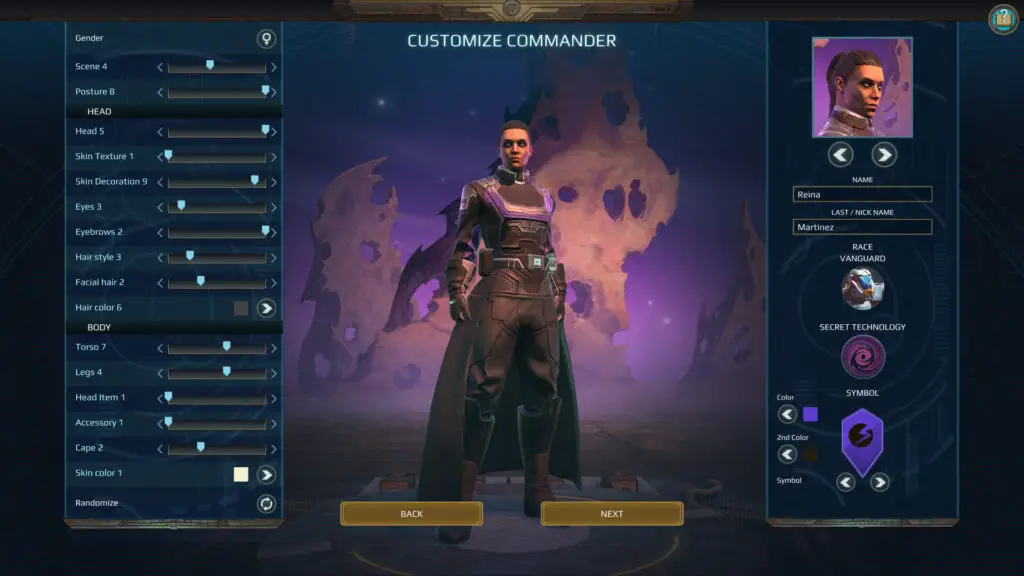
The divisive Civ meets fantasy RPG game sees players take control of a kingdom of Orks, Elves, Dwarves or humans and compete with other factions for control of the realm in turn-based warfare. Age of Wonders packs a lot of content into its games and it’s a bit of a mixed bag, with a magic system that is a bit vague but a fun levelling system for characters and intricate X-Com like battles that play out on a hex grid.
In many ways, if you’ve played Civ, then you’ll feel at home playing Age of Wonders. Settlers create new cities which then can spawn new units, engineers build roads and improvements and armies can fight random hordes that populate the land. The density and hostility of the NPC armies is one of the major changes as, dependant on your initial settings, the map can have a plethora of random NPCs, some of whom just sit and guard a resource and some of whom will come and attack your kingdom and raze your cities!
You’ll be juggling resources, with gold spent to raise new units and pay existing ones and then “Mana” or something like it, depending on the game, allowing you to cast spells on the strategic or tactical map.
Your heroes are pretty buff too and can outfight most other generic units, though the tier system will quickly give you a steer on which units outfight which. But like any good tactical game, all combat units have their uses and even the humble halberdier or spearman can be useful to stop enemy cavalry.
Age of Wonders isn’t without its problems and the early incarnations of the game seem quainter than playable now but with Planetfalls arrival, Age of Wonders got a sci-fi makeover. There’s also some decent mod content out there and Age of Wonders can be really immersive and give you that “one more turn” feeling.
9th – Combat Mission series
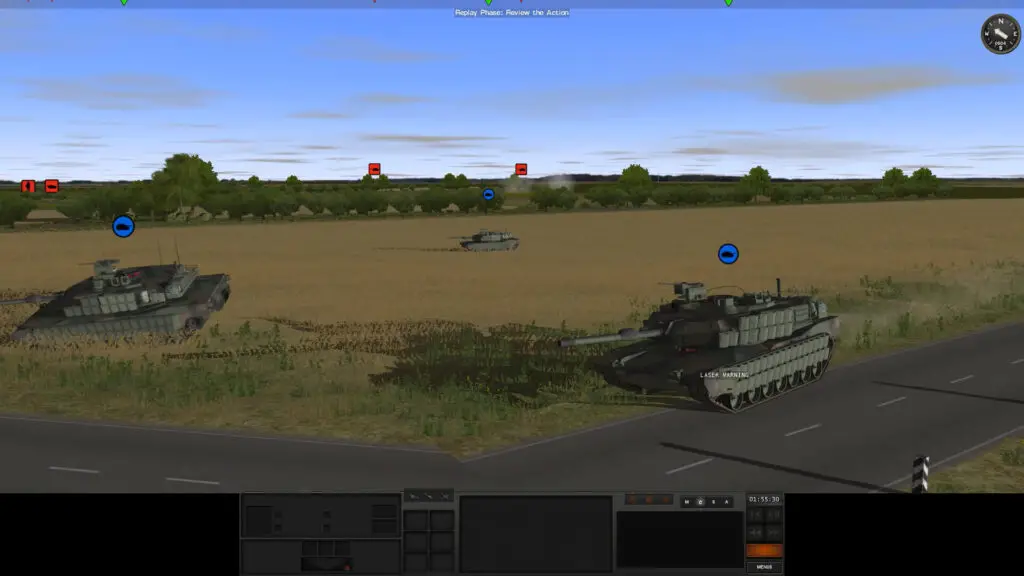
Another venerable series, Combat Mission is an interesting hybrid of real-time and turn-based action but really the game plays out in segments of time and then stops to allow you to program in another set of orders.
Combat Mission offers a very deep and realistic simulation of battlefields ranging from World War Two to a hypothetical modern-day conflict between the US and Russia. Armoured warfare is where the game is at its peak and facing, concealment, armour penetration and vehicle variants are all present in pain-staking detail.
You plot your orders in stately pause mode but once you hit play, all hell can break lose and tracer rounds, artillery shells and high-velocity tank shells start flying and you may find yourself rewinding to try and figure out what happened to that recon platoon that took fire from three sides or whether its worth using artillery to drop a smokescreen to cover your retreating armoured company.
Combat Mission has a somewhat old-school UI and does nearly nothing to explain itself, with either a rudimentary or no tutorial at all but players who love the game swear by it and there are few better simulations of modern warfare out there.
The campaign modes can be a bit weak at times but an enterprising player can make more of them or use the game’s powerful editor tools to create their own campaigns too.
8th – Dominions series
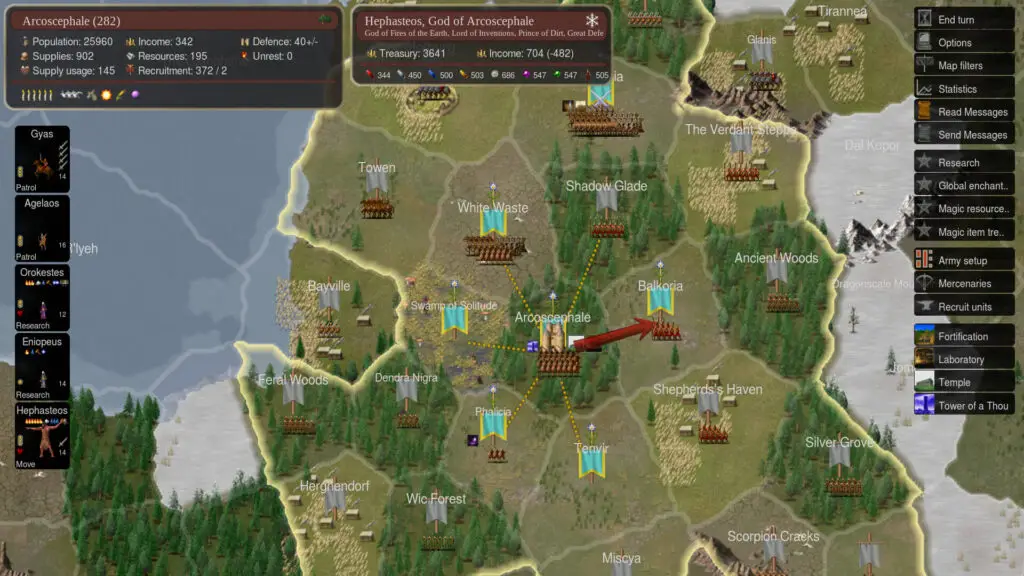
For some people, Dominions is one of the most inscrutable experiences of all time. Dominions is an ocean deep simulation of warfare in a fantasy world between wannabe gods referred to as pretenders (and sometimes their disciples).
Players will choose a pretender God, a civilization, and build their stats using a very deep and complex customization system. The sheer range of options is truly dizzying. You can choose an “early age” where magic is plentiful and armies are lower quality or the late age with the reverse, magic is fading and armies are stronger. There’s also a vanilla “middle age” if you want a bit of both.
Players can end up leading C’Tis, a nation of snake people and their pretender God could be a sauromancer, a giant snake or a dragon. Alternatively, you could command Abyssia, a kingdom of half-demons who are always hot and give off baking heat and could be led by a fallen angel, a fire elemental or a lich. Or you could be really gonzo and go for Pangea and have a huge army of dryads, satyrs, and centaurs led by a giant bull, an Earth mother, or a standing stone.
The game has a truly massive and complex magic system allowing you to discover a massive range of spells ranging from minor buffs and simple attacks to global effect spells that can affect the game’s strategic map. Players will also recruit armies, build castles and conquer new lands, spreading their “religion” of worship of their pretender God.
Dominions is truly not for the faint-hearted, with a hard-to-use UI that even on the most modern iteration is still basic and tricky to use and somewhat counter-intuitive controls. Even if you can figure out how to play, the game is hugely difficult to master and multi-player games can be a work of devious masterwork as combinations and synergies abound.
Dominions is a vast game, with a huge modding community and even with thousands of hours played, you can still encounter something new, if you can get past that UI!
7th – Panzer General / Five Star Series
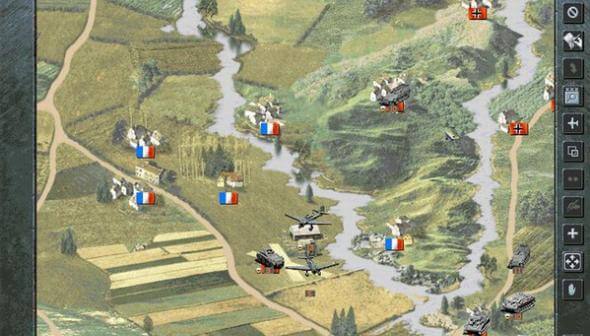
Turn-based games were dying out in the 90s, seen as the outdated cousin of the real-time strategy as games like Dune 2 and Command and Conquer dominated the charts. SSI had one last trick up their sleeve as they came up with Panzer General, the first in the long-running Five Star series.
Panzer General, on the surface, was just a hex-based WW2 game that saw a player command a roster of units during a campaign. But the games innovations were myriad and breathed life back into a dying genre. Players would carry over their core units between missions, with them gaining experience whilst non-core units could be cannon fodder.
The game also simplified many things that had put people off and offered a simple “strength points” system to track how long your unit may survive and with a lot of stats under the hood. The game also had colourful graphics, later upgraded to 3d graphics, which made the game far more approachable.
The game’s clever “rock paper scissors” system also meant that no unit was useless and no unit was indestructible, every unit had its purpose and even the humble infantry were the best to take and hold urban areas whilst tanks were mobile and powerful but could be ambushed and destroyed.
AS the series went on it moved theatres to the Pacific, time zones to modern-day, and then even into the past with Fantasy General and the far future with Star General. Some of these spin-offs were not as well received but the series is still going to this day and has influenced the genre in a huge and significant way.
6th – Battle Brothers
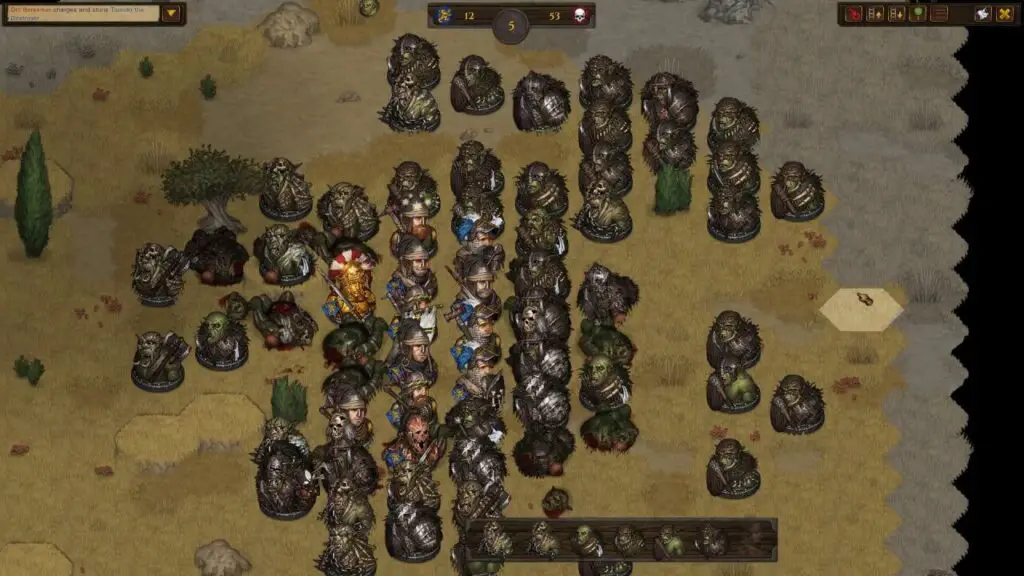
A turn-based “low-fantasy” game about running a mercenary company, Battle Brothers has a unique and quirky visual style that is somewhat akin to having “paper-dolls”. Battle Brothers could have been a run-of-the-mill game but have a number of really strong selling points.
For a start, the game’s setting of a Germanic but fictional realm, beset with powerful orcs, sneaky goblins and hugely annoying undead is both fantastic and deeply realistic. If you took the monsters away from the game you could set it in medieval Europe without missing much of a beat.
The game’s turn-based tactical combat which makes use of initiative, height, skill and that each weapon has its uses. Whilst every weapon may reduce an enemy’s hit points, clubs and mauls can be used to daze an enemy whilst axes can shatter shields and picks can destroy armour. There is no one weapon that is better than all the others, though the cross-bow is pretty close! Combat also features a really well-designed soundscape, with blows sounding believably crunchy and painful and it really helps to build the picture that the game isn’t showing you with its graphics.
You’ll recruit and lose lots of characters as Battle Brothers is an incredibly harsh and ruthless game. Thanks to RNG, you can lose a character in a single shot sometimes and the game can be just mind-shreddingly frustrating at times. Early on in your Battle Brothers journey, you’ll get wiped out before you reach day ten and when you do make it today twenty with a company of five or six brothers, you’ll count yourself lucky.
Once you get deep into Battle Brothers though, you’ll find that most other games that purport to be like it just can’t cut it and the games deep levelling up system-wide array of enemies, loot, and “End Game Crisis” will keep you coming back. The DLC really adds a lot to the game too which is both a good and a bad thing.
There are also a fair few mods for Battle Brothers, though these aren’t always simple to implement
5th – Football Manager

I thought long and hard about whether Football Manager should be on this list but I decided that it is turn-based, it is strategic and therefore it goes on the list. Few games have eaten up quite as much of my time or made me obsess as much as this one, which is both a compliment and a curse of the game.
The game has been through a massive number of iterations, rebuilds and confusing brand changes over the three decades it’s been around but there is simply no better or deeper football sim out there and most sports sims appear to have been influenced by Football Manager.
The game is basically a very powerful football sandbox that will allow you to manage the club or country of your choosing in almost any division and at almost any level. With a mod or some time spent on a database editor, you can manage pretty much any real-world team you want.
The game asks you to manage the day-to-day elements of your football team, great or small, from team selection, scouting new players, signing new players, youth teams, and training. Many of these elements can be automated out too, giving the player the freedom to get as deep as they want but even with everything but match day automated, you’ll have your work cut out with formations, player roles, player moods, player fatigue levels and social hierarchies to think about.
Football Manager’s older versions lack the polish but do allow a player to complete a full season in a much shorter span of time and lack the obsession with the press and social media that the modern game has. But Football Manager remains an institution and offers one of the most entertaining and realistic sports sims on the market.
4th – Field of Glory inc Field of Glory Empires
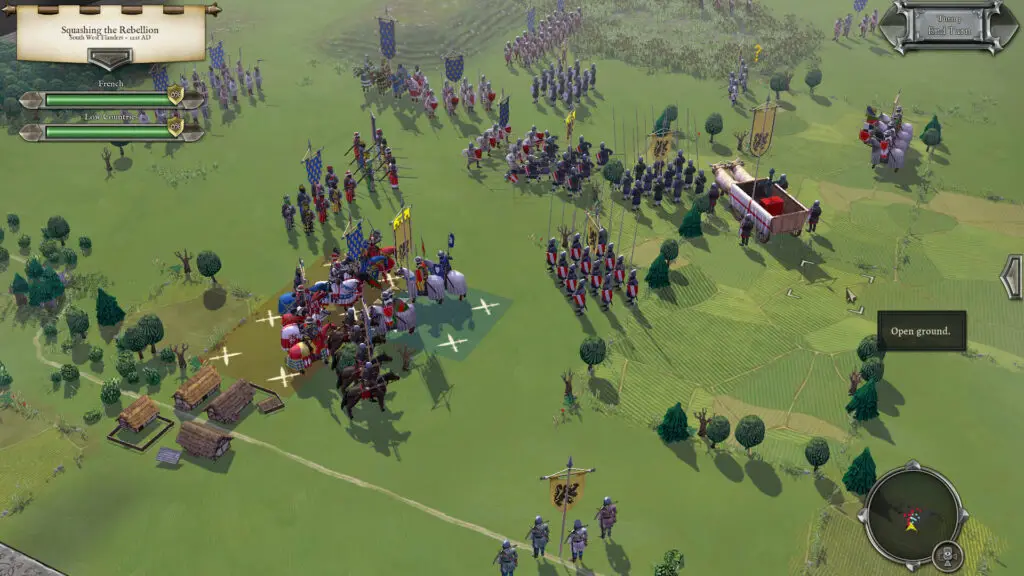
Based closely on the tabletop miniatures game, Field of Glory brings medieval and ancient warfare to life with its stylized turn-based battles. Players control an army, either pre-selected, auto-generated, or selected from an army-list and then deploy for battle.
Field of Glory has a truly dizzying array of armies, units, battles, and eras to battle in and players can command Hittites in biblical times all the way up to crusaders and early medieval warfare. The Points of Advantage system and the games powerful and intuitive UI makes learning the game easy but mastering it very hard.
The charming graphics, which very much resemble stands of painted miniatures, work well even out of scale with the terrain (all veteran FOG players will mention the hoplites dwarfing the buildings).
Of course, it wouldn’t be a strategy game if it’s just tactical battles, as good as they are and Field of Glory offers you campaigns with branching options, procedurally generated campaigns with time-period appropriate enemies and allies and even the option to branch out with Field of Glory: Empires which gives the game its own grand strategy engine, with the option to fight out the tactical battles in the Field of Glory game
You will also find spin-offs “Sengoku Jidai”, moving the game to Japan or Pike and Shot, taking the game to the thirty years war and the English Civil war, as well as strong modding support.
3rd – Civilization series
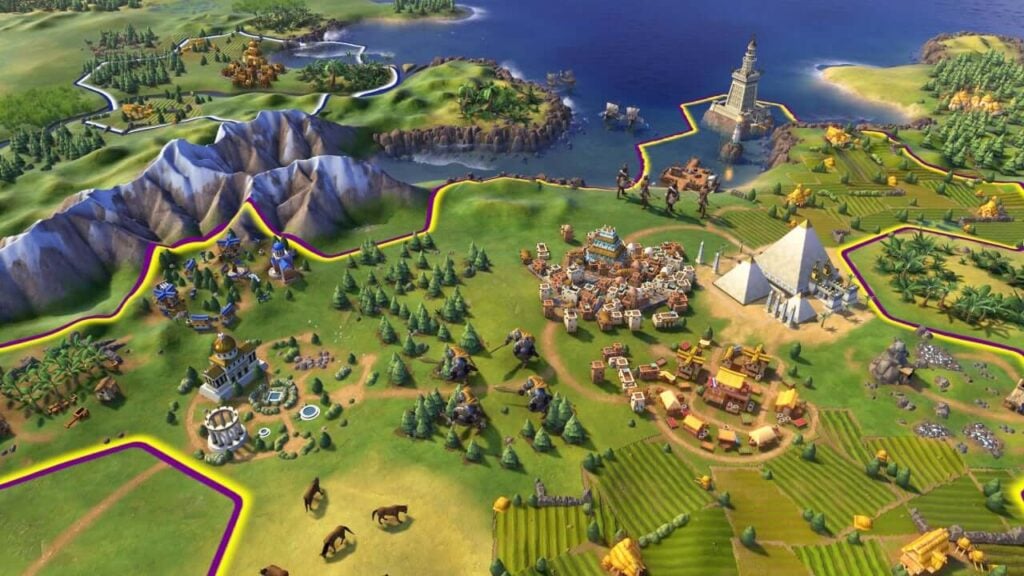
The long, storied history of Civilization is well known and there have been six major iterations of the game, not to mention spin-offs and countless imitators and clones. But Sid Meir’s original Civ was the one that popularised and implement the grandest of grand strategies, seeing your people go from the stone-age to the space age in one, very long turn-based game.
The phrase “Just one more turn” was pretty much invented for Civ and has become one of those phrases often uttered in support of a classic turn-based game. But in Civ, often playing single-player against a dozen AI civs, you would often just want one more turn to see if you’d win a war, invent or a new tech or finally get that city to stop rioting.
Over the years and iterations, Civ has increased and decreased its complexity, granularity and its focus. New ideas have been brought in, new resources, new systems, and sometimes stay and sometimes they go. If you ask a hundred CIv fans which game in the series is their favourite, you’ll likely get a lot of different answers.
Civ 6 has a fantastic UI, great graphics and is about as polished as you can make a strategy game. Again, there are lots of mods, modes and other ways to play. Civ is a bonafide classic.
2nd – Into the Breach
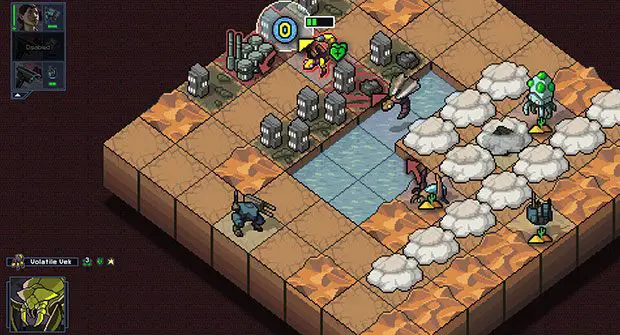
Into the Breach is a classic entry in terms of minimalist design. This roguelike/rogue-lite game sees you control three mechs and their pilots as you travel back in time to try and rescue a group of islands from invading giant insects, the Vek.
With an inspired, inspired by 16bit look, excellent and incredibly intuitive UI and sleek, stripped-down gameplay, Into the Breach offers an incredible experience that sometimes blurs the line between strategy and puzzle game.
The enemies’ moves are plotted first but then the player has actions with their mechs to interrupt, pre-empt or dodge the enemies actions. But as you’ll always be out-numbered and trying to protect the critical generators to prevent a game over, you’ll be hard pressed to be able to react to everything in-time. The player will need to find ways to knock enemies into water (instant death for them usually), into each other or to bump them so they shoot harmlessly or, better still, at each other!
Targets, ranges, and damages are all clearly marked and the UI makes sure that the player has no nasty surprises, so when something goes wrong, you know it’s because you didn’t think it through or you missed it. Indeed, the low density of pieces and the small board make the game feel quite chess-like.
The player can also reset time once per battle, allowing you to undo a turn if it’s gone particularly badly. Even total defeat, with dead pilots and the generators down, will just reset the timeline, allowing you to bring one fully upgraded pilot back to the new timeline and start again.
Between battles you’ll pick upgrades and shuffle them between your mechs, juggling power requirements and the pilots that man the mechs as you head towards the final boss. Once you’ve saved enough islands and leveled up your team enough, you can go for the final mission and try to win it all.
There’s a huge array of mech-teams to unlock and the option to mix and match and there are lots of tricky achievements out there. Into the Breach is inspired and everyone who loves turn based games should have played it.
1st – XCOM: Enemy Unknown / XCOM 2: War of the Chosen
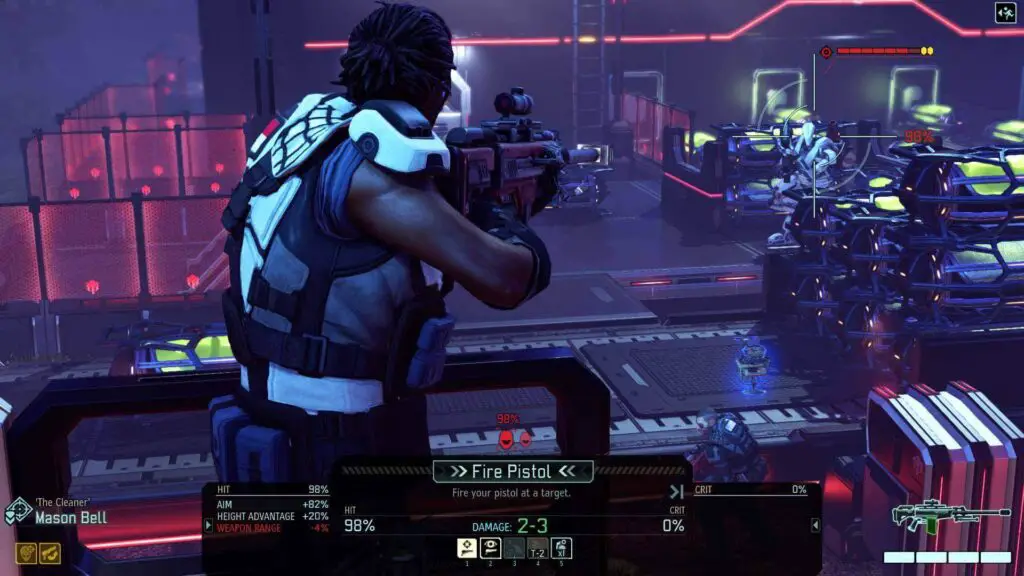
When Firaxis decided to reboot the classic Xcom series that had lain defunct for more than a decade, many felt that the game would likely be dumbed down and lack the depth and ingenuity of the original. When it was reported that it would be on console, this further added to people dismissing it as shallow and weak.
When XCOM arrived, it wasn’t quite as you remembered. Gone were the Action Points, individual magazines, and blowout hairstyles of the old game. You could no longer build multiple bases and you wouldn’t see stray shots speed across the battlefield to smash a hole in the bar. Instead, XCOM’s powerful engine showed the action in a dynamic, action-packed, and often very intimate way, with zooms to key moments as your squad would fire shots, rush for cover or be blown away by a loathsome sectoid.
Rather than just being able to rename your squad members and change their gear, XCOM brought in a class-based system that whilst a bit restrictive and occasionally producing too many snipers in XCOM: Enemy Unknown, allowed you to fine-tune and level up your soldiers like never before. You could also customize their appearance, their name, their gender, and their nationality, making the player/soldier bond tighter than ever.
The campaign mode was dumbed-down, with air-combat now very much simplified (and done away with completely in XCOM 2) but the game had a rich, deep combat system with flanking, suppression, grenades, heavy weapons, use of high ground, and some truly insane stacking abilities which could turn high-level characters into near super-heroes.
However, perma-death remained the feature of the game and the mixture of the thrill and agony of risking a top-tier soldier to pull off a mission is very hard to match. XCOM 2 flips the script with its resistance warfare and ambushes and war of the chosen perhaps adds too many features but still gives you an incredibly deep and exciting box of toys to play with.
And that’s not even talking about the mods! Long War and Long War 2 are essentially brand new, punishingly hard versions of the base game.
So there you go, that’s my top 10 turn-based strategy games of all time! Let me know what you think of the list in the comments below!

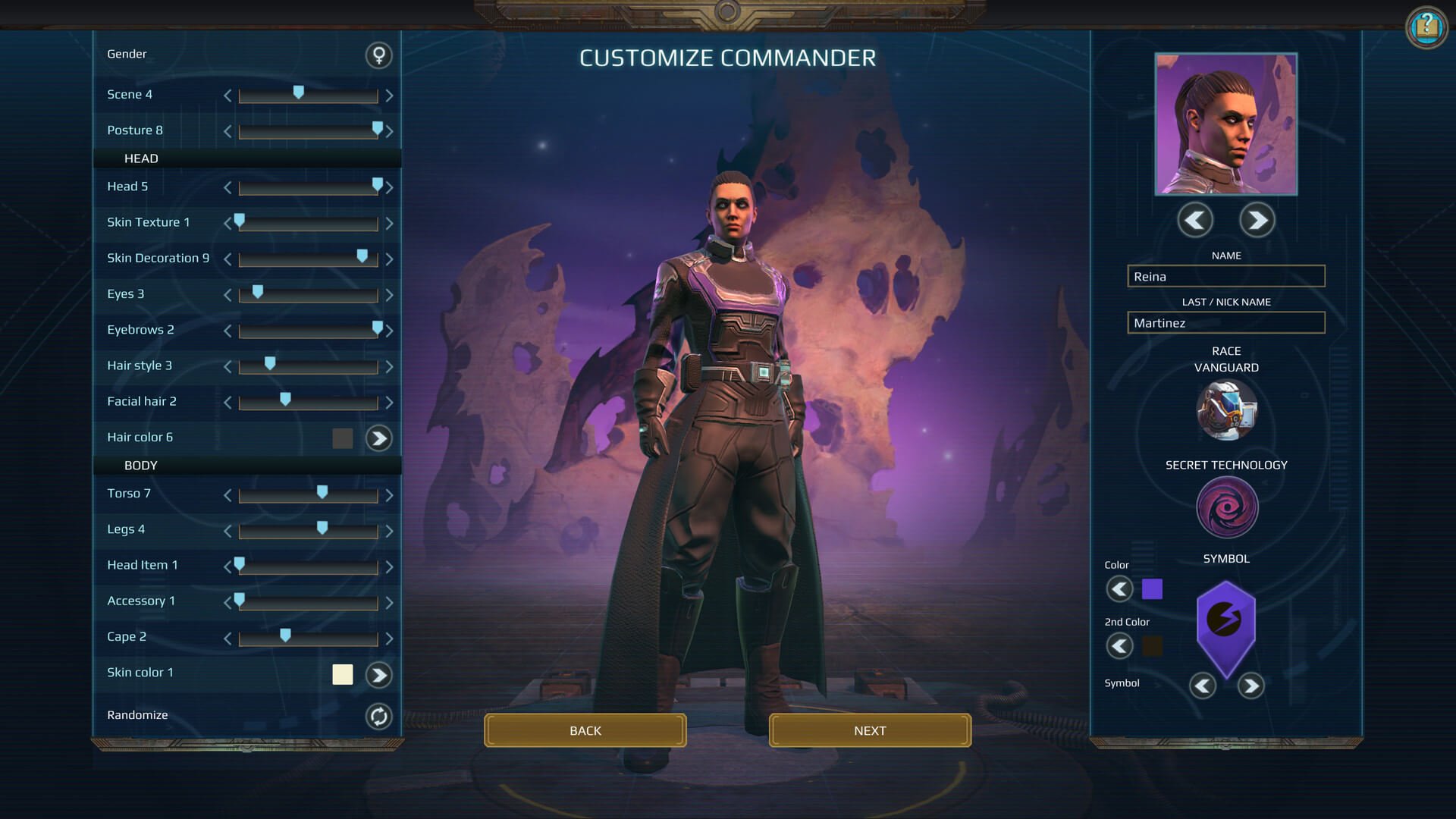






I started playing Wldermyth a week ago, and it seems like a really incredible game. The story that is built around the actions taken by your party is a huge draw, leading me to a lot of “What might happen next” scenarios that make me want to take just one more turn.
Phoenix Point is way better than new XCOMs and it’s made by the original X-Com author.
I am guessing you guys haven’t played yet war in the east 1 and 2 and war in the west.
Not even a mention of Battle for Wesnoth???! Fail
Jagged Alliance 2
Jagged Alliance 2 is definitely a great game. It is a good successor to the original XCOM if your philosophy about what makes a good turn-based game matches the philosophy of the designers.
My philosophy doesn’t match JA2 at all. I want life to be cheap and squads to be large and expendable. I want battles where my one survivor means that I have won the battle. I want it to be mildly bad if you accidentally blow up innocents but if an innocent is standing next to an enemy, a rocket launcher is still a rational choice. I want a lot of freedom in how to arm my people. Henry can carry six grenades if he doesn’t carry a gun? Great! I also want a realistic grenade system where there is time between when you throw the grenade and when it lands. Henry tossed a grenade at the machine gun nest and, while he did blow it to smithereens, the machine gun took him out between the time he tossed and the time it exploded.
As far as things that I agree with JA2 on, I want no magic and definitely no psionics. I want a wide variety of weapons of different stats. I want to be able to outfit a squad for close combat for the urban fight or outfit them with rifles for the open steppes.
XCOM: Terror from the Deep could have been a great game for me if the boards were not so dang large that the board sometimes became, well, boring because trying to find the last remaining alien might take twenty minutes. I love the expendable-but-individualized soldiers in XCOM: TftD. I certainly wish it didn’t have such a vertical hierarchy of weapons though. “Everyone has a jet harpoon! Later, when sonic blaster rifles come available, everyone has a sonic blaster rifle!” This eats into the tactical fun somewhat because (nearly) everyone’s role is the same.
Lol, never thought anybody to make a strategy game list without Fire Emblem. It easily tops everything on here without question. Radiant dawn is my personal favorite.
Heroes of Might and Magic is the best TBS of all time and you haven’t included it even in honarble mentions???…
Uff so many better options. Agree with XCOM being at the top, but just missing important titles here. Writer needs to do some better investigation before pushing these out.